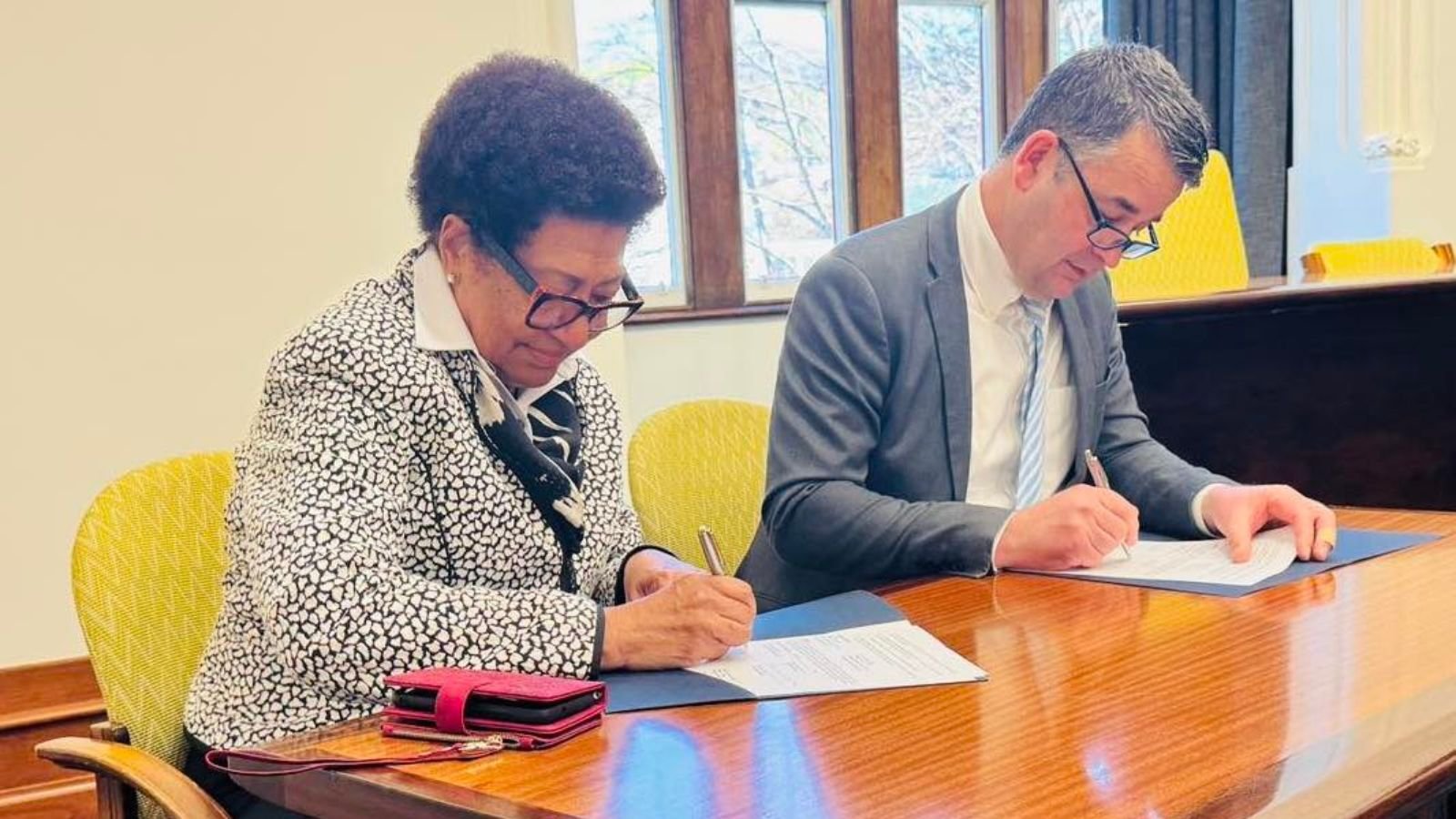
University of Canterbury Master’s student Tamara Stratton is transforming her academic research into practical solutions to enhance drinking water quality in Tonga
Initially, Stratton did not plan to pursue a master’s degree. However, her commitment to the Tongan community was ignited in 2022 when she joined a team to install water filtration systems in local schools as part of her Diploma in Global Humanitarian Engineering at Te Whare Wānanga o Waitaha | University of Canterbury (UC).
She was part of a team of student engineers that installed water filtration systems in three Tongan schools. This experience led her to question the sustainability of such systems, as they often rely on consumables like UV lamps and membrane filters, which can be expensive and difficult to obtain.

Although she had a job lined up, Stratton wanted to continue exploring more sustainable, community-based solutions for safe drinking water in Tonga. So, she started part-time research towards her master’s thesis focusing on bio-sand filtration, a cost-effective and accessible method using local Tongan sand.
Project supervisor, Associate Professor Ricardo Bello-Mendoza, highlights Stratton’s community-oriented approach. “Undertaking research that could have a positive social impact is meaningful, and it will be very well received if we produce something that will help the Tongan community long term.”
“This is more than a thesis; it’s something that can be implemented and could actually work to improve people’s lives,” he says.
Stratton’s project involves developing and testing bio-sand filters with coral sand from Tonga to determine their effectiveness and practicality. Supported by local organisations, she has been conducting experiments and is preparing to return to Tonga. There, she will collaborate with community members to build and install prototype filters, assess their performance, and refine the technology based on local needs and conditions.
Stratton believes it’s important for engineers to consider the people aspect of a project as well as the technical.
“Research so far has been very lab focused, but one of the UC lab technicians in the team, Siale Faitotonu, is Tongan and has supported us in sourcing the sand from Tonga,” she says. “It’s been encouraging to have his input and I’m excited to return to Tonga to work alongside with the community, equipping them to use the bio-sand filters long term.”
The initiative is particularly timely, given recent volcanic activity in Tonga, which has raised concerns about ash contamination in rainwater. Stratton’s work aims to provide a resilient solution that will ensure safe drinking water, even in such challenging environments.












